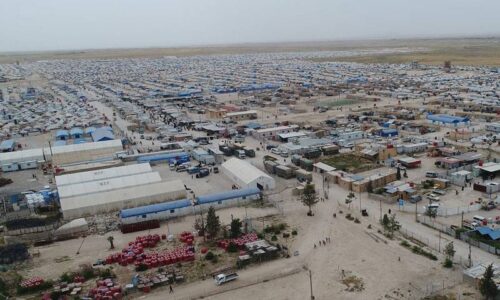
Afghan terror training camps could cause wave of attacks in Europe in five years
Experts fear Afghanistan will again become a haven for terrorist training camps and that Europe could face a wave of attacks in five years’ time.
Since 9/11, more than 30 Al Qaeda terrorists have been convicted of plots in Britain, most recently in July.
The Henry Jackson Society, a think tank, told The National the threat posed by the terrorist group on UK soil was “still very real”.
More than 260 Al Qaeda and ISIS extremists remain on the UK’s sanctions list and thousands of pounds of assets linked to them have been subjected to freezing orders.
The director of the Counter Extremism Project, Hans-Jakob Schindler, has worked in the UN Security Council unit that monitors ISIS and Al Qaeda.
He believes extremists from Europe may now travel to Afghanistan to train, and that terrorist attacks could increase when they return to the continent.
“Tragically, it feels like we have come full circle. We are very much in a situation where we run the risk that we are chasing our tail,” he told The National.
“Half of the Taliban’s new government are on the UN sanctions list for a very good reason. The Taliban and Al Qaeda are not separate and have never been separate.
“If European fighters travel to Afghanistan there are lots of material which has been left by the US that they can get trained on and in six months they can be ready to commit attacks.
“On social media we have seen extremists celebrating the victory of the Taliban and now Afghanistan is becoming a very attractive place to them, all of a sudden.
“In 2001, 10,000 foreigners went to Afghanistan to train with Al Qaeda. It might be five or even 10 years, if we do not pay attention, but it will happen again.
“We will have significant numbers of fighters in Afghanistan and lone wolf terror attackers training there and then returning to commit attacks in Europe.
“We cannot expect the Taliban to be reliable counter-terrorism partners in the future. The terror threat in Europe over time is going to become more serious.”
CEP’s chief executive, Mark Wallace, a former US ambassador to the UN for Management and Reform, fears Afghanistan will become a “sanctuary” for terrorists.
“Terrorism did not begin nor end with the tragedy of September 11,” he said.
“However, the attacks showed that groups like Al Qaeda are highly motivated to attack the United States on its territory. Recent events in Afghanistan have ignited concerns that the country will once again become a sanctuary to [extremist] groups, which could plot and direct attacks against the US and its allies.
“There is still much work to do to combat terrorists and the regimes that enable or harbour them.”
On Saturday, events took place across the globe to mark the 20th anniversary of the September 11 attacks.
Former US Homeland Security Advisor Frances Townsend urged the world to remain “vigilant”.
“The long-term effects of 9/11 are still unfolding today, as the US government works to curb terrorist threats emanating from the homeland and internationally,” she said.
“The tragic attacks from 20 years ago are a reminder that our military, intelligence agencies, and law enforcement communities must be unyielding in the ongoing effort to disrupt and destroy terror networks.
“The victims of that day and the families that they left behind as well as the heroic policeman and firefighters who still suffer the after effects must ever remain our inspiration to be committed, vigilant, and continue the fight.”
Last week, the head of Britain’s domestic intelligence service said the Taliban’s takeover of Afghanistan had “emboldened” extremists and could lead to more atrocities.
Ken McCallum said MI5 had disrupted six “late-stage” plots developed during coronavirus lockdowns over the past 18 months, and 31 in the past four years.
Source: The National News





